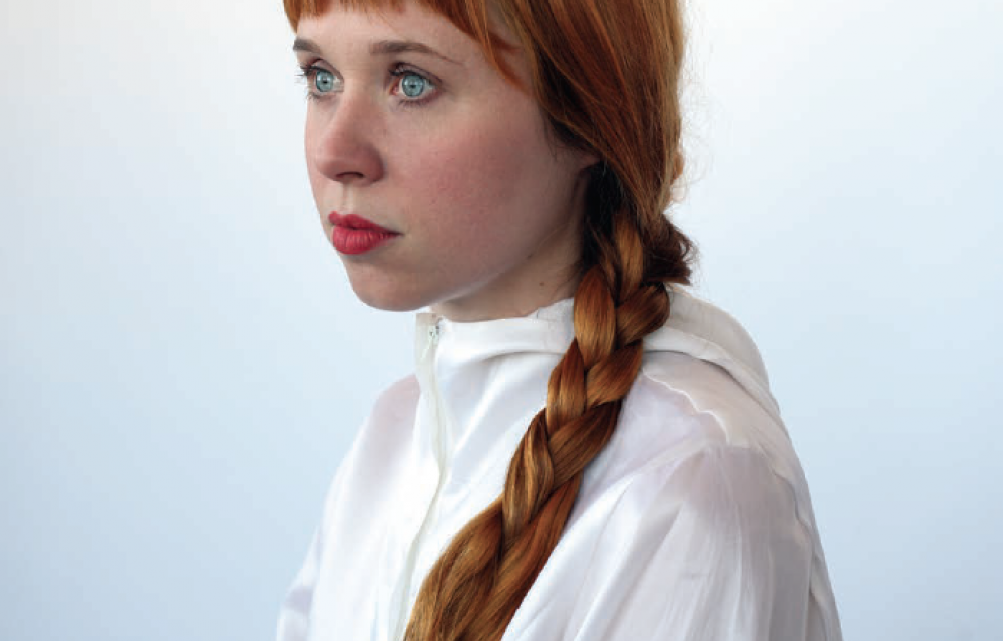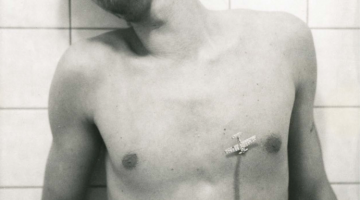I leave home just as Terminal starts.
iPhone in my pocket, earbuds snake out from under a black toque and dart into the front of my puffy black jacket. I look like I’m about to rob a house. I careen into Holly Park, aiming for Bernal hill and a view of the city’s horizontal expanse. Just when I turn a corner, the music jumps and bursts open and I look out, over the eastern half of the city and the haze over the bay, light blues and soft pinks stain the sky.
It’s twilight, the interval between day and night so different that it has its own name. Terminal is sharp and angular, with beats drifting in layers. Its spatial play slips left and right, whispers into the distance, then obliquely slashes up-close. Unlike the tracks that follow, Holly Herndon’s vocalizations are only fragmentary for most of Terminal, screened beneath the code.
I’m halfway up Bocana Street’s slow incline before the second track Fade kicks in. Its crisp pulsating beat competes with the ominous underlayer—the sense of darkness approaching. “Reach out…” intones the vibrating vocals, “without.” Looking south to the horizon I see the grey-blue fog creeping across the hills. I walk past an empty car with its lights on, they click off. At the end of the next block I see the sodium vapor street lamp flicker to life in the middle of a tall tree flush with budding green. I hear “I’ll be there,” as Fade continues.
I reach a road leading around the hill and find a women in black suede boots. Strange that she’s so beautifully dressed amidst the runners and dog-walkers. I follow her up to catch the sun’s final glow. Over the ridge, the city looks steely, clear. A low hum at this distance. I’m listening to Breathe, the sighs and entropic tumbling, moments of surprise, of guttural respiration. I hear my own breath hiss lightly, my heart pumping at the end of the elevation. Pause.
Holly Herndon’s recent album Movement is my soundtrack, an album that employs the laptop, which she calls “the most personal instrument that the world has ever seen.” Her soft intonation and warmly contoured vocals humanize the high-fidelity. It’s too easy to call this music. Play.
Leaving the view, I turn back before dark settles its argument with day. Control And drops the pitch and crystalline splinters of sound follow me down. The vocals remain atmospheric, floating, and phrases stream into Movement, the title track. Seething. Pounding. Clicking. Movement’s poly-rhythmic loop persists the entire track. It’s a song that paces my footsteps. Then a brief but crashing, screaming Interlude. Finally Dilato which means to extend, or stretch. A solemn but intimate vocal track with choral undulations. The title is spoken, elongated, and time slows and then winds-up. I hear a bird chirping over my head as I pad up to my front door. It’s just dark now and the album is finished. Herndon’s work is like twilight, somewhere between night and day, between the club and art museum, between elision and eruption.
I dig for my keys and watch the final seconds elapse on the screen. I’ve crossed from one world into another.



